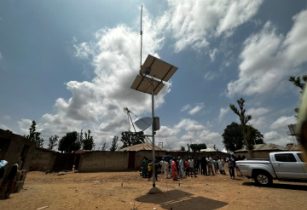The Uganda Communications Commission (UCC) says broadcasting is the most widely accessed and used channel of communication in Uganda, due to its ability to reach a wide populace simultaneously at a low cost
The UCC was established to implement the provisions of The UCC Act (2013), and the principal goal of developing a modern communications sub-sector and Infrastructure in Uganda. Its mandate is to undertake a range of functions in the following areas: licensing and standards; spectrum management; tariff regulation; research and development; consumer empowerment; policy advice & implementation; rural communications development; and capacity building. The UCC’s Board of Commissioners are responsible for policy formulation and guidance to the Commission’s management. With respect to broadcasting policy, the UCC ensures that the broadcasting industry continues to play a pivotal role in the socio-economic development of the country. As Dr. James Nsaba Buturo (MP), Minister of State for Information, Office of the President, wrote, the UCC aims to promote “national unity, democratisation of the airwaves, education of communities and strengthening of the moral fibre of society.”
UCC is thus not only the regulator, but also a facilitator and promoter of coordinated and sustainable growth and development of Uganda's communications sector. The regulatory body of the communication industry in the country adds that the broadcasting industry is currently served by by 250 operational FM radio signals covering over 89 per cent of the country and 97 per cent of the population while the digital terrestrial television (DDT) currently covers 51 per cent of the country's geographical area and 65 per cent of the population.
The rest of this article can be read on page 33 of the latest issue of Communications Africa:
http://communicationsafrica.com/current-issue



































